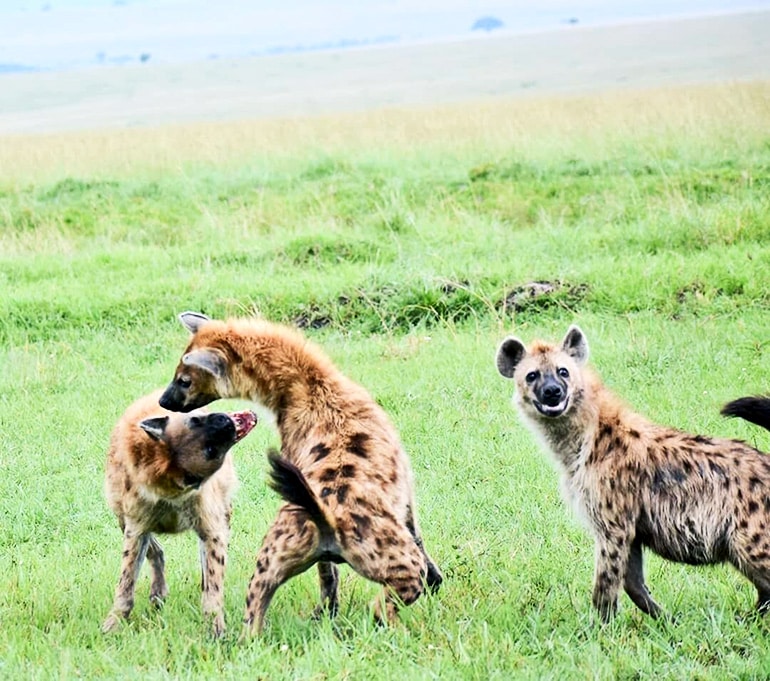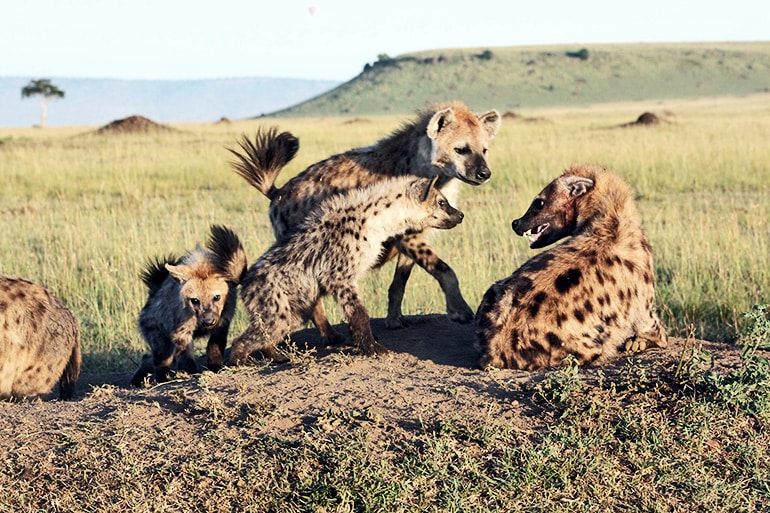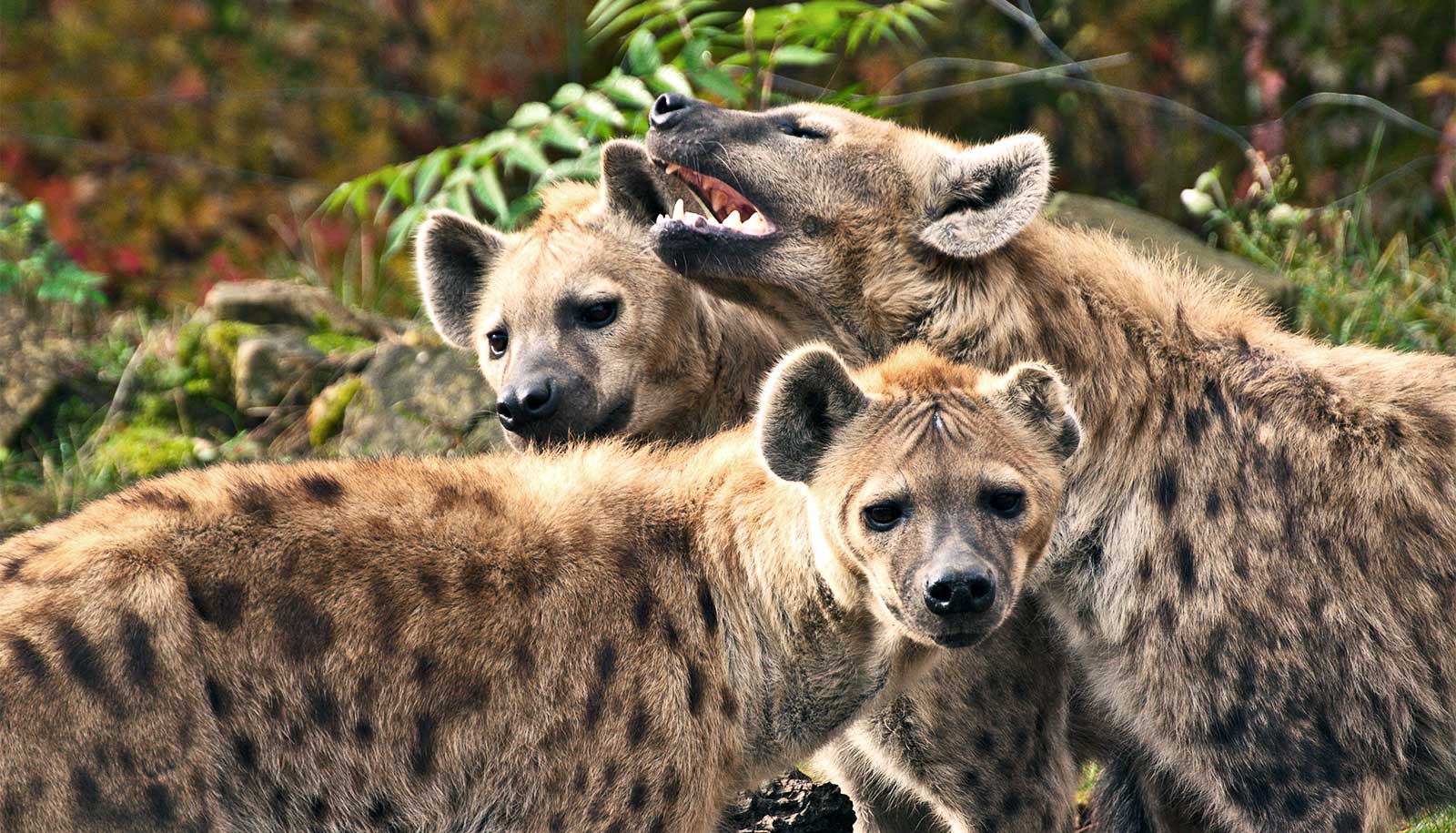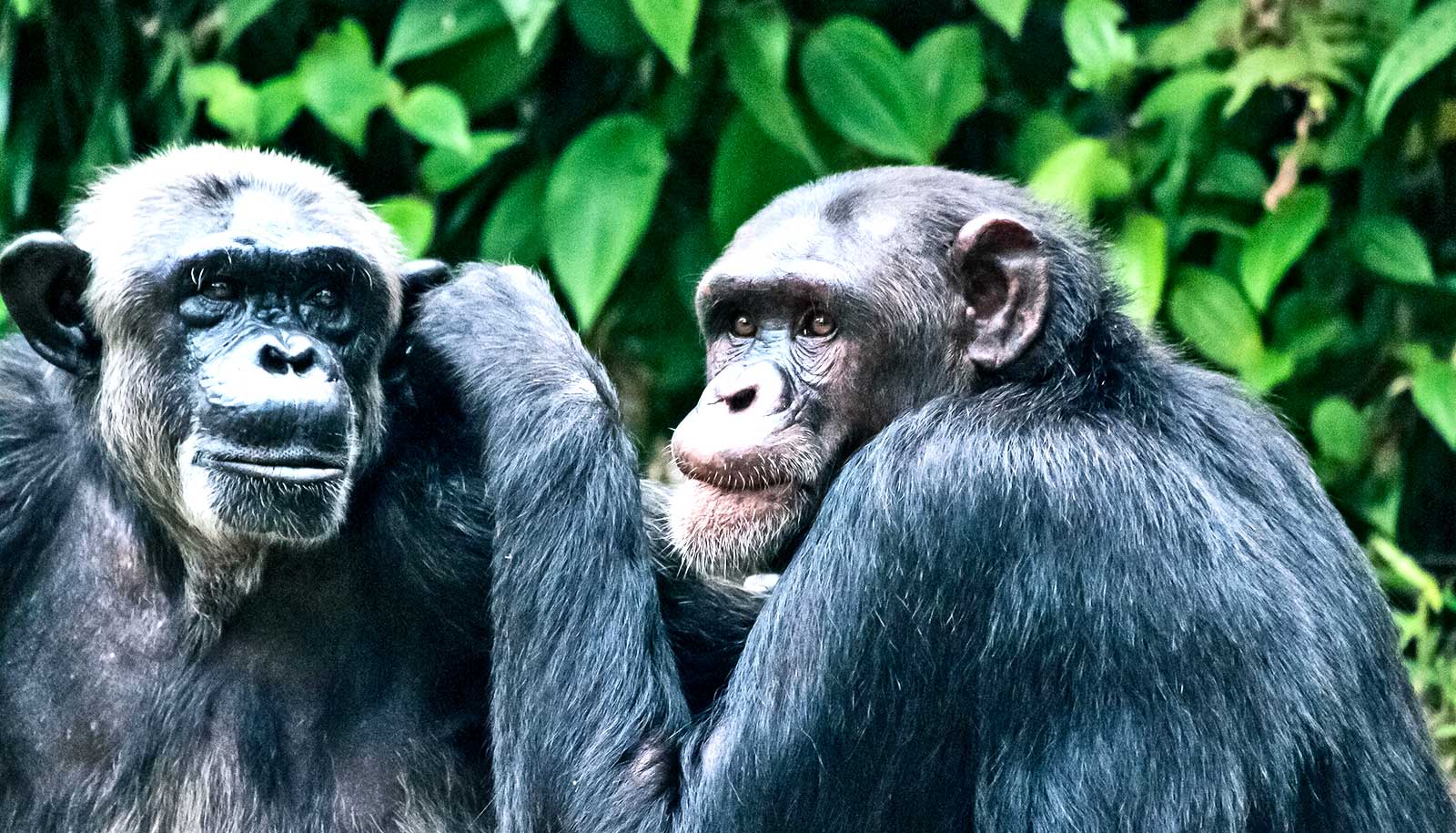Hyenas that form strong coalitions gain social status, which can have lasting benefits over several generations, a new study shows.
“The high-ranked animals clearly benefit from this system,” says Eli Strauss, an integrative biologist at Michigan State University and lead author of the paper, which appears in the Proceedings of the National Academy of Sciences.
“But low-ranked animals have a strong incentive to challenge the established pecking order and attempt to improve their position in society. This work represents a first step in reconciling the advantages of high status with the appearance of ‘arbitrary’ conventions that structure inequality in animal and human societies.”

Moving up the proverbial ladder can result in substantive differences in health, survival, and reproductive success. So, with some animals, individual fighting ability or physical attributes determines social rank. Typically, low-ranked individuals are unable to defeat their larger or stronger, higher-ranked contemporaries. In other species, however, such as spotted hyenas, a convention known as “maternal rank inheritance” determines social rank
Royal families
This structure is a bit like royal families. The queen sits at the top, and her offspring are the heirs to the throne. This explains what researchers have observed in hyena clans since coauthor Kay Holekamp, a professor of integrative biology at Michigan State University started her study in Kenya’s Masai Mara National Reserve 27 years—and five generations of spotted hyenas—ago.
Spotted hyenas live in large, mixed-sex groups, or clans. They have highly stable hierarchies, where the “queen” reaps many benefits. Sometimes, however, “lesser” hyenas challenge the crown and move up the ladder.

“We often see small individuals dominate larger individuals, and even severely wounded individuals can dominate their healthy group-mates,” Strauss says. “Given that rank has a large effect on the fitness of these animals, what maintains the stability of a system where rank is determined in such an arbitrary manner?”
The answer, the study reveals, is strong alliances.
Hyena wars
First off, rank changes are rare among spotted hyenas. When they do happen, though, females armed with a strong coalition mark the upward changes. Researchers measured rank reversals in the context of coalitionary aggression—where two or more individuals team up together in an aggression against another.
Females that form coalitions with other females harboring strong social bonds have the strongest chance of overthrowing their superiors. The results also suggest that as individual hyenas engage in more coalitions together, they become more willing to challenge dominant individuals—and their underlings, too.
“Eli developed a new method for studying dynamic changes in social rank over time and determined that coalitions of social allies can not only maintain stable rank relationships over many years by attacking lower-ranked individuals,” Holekamp says, “but also can sometimes help one another improve their status by defeating higher-ranked opponents, and thus also increase their fitness.”
Going to war, of course, is not without consequence. Subordinates risk injury or possibly death, which obviously can be detrimental to their lives, let alone their place in the social strata.
Future research will attempt to rate cost factors of these revolutionary interactions. In the meantime, the new paper solves a long-standing mystery, Holekamp says.
“This resolves a perplexing issue regarding why low-ranking animals in hierarchical societies structured by seemingly arbitrary conventions, such as royalty, don’t simply usurp power from the smaller, weaker group-mates who outrank them,” she says.
“Consider, for example, how easy it would be for a strong young man to overthrow Queen Elizabeth, who is now old and frail, yet maintains her high status in British society because she has loads of allies.”
The National Science Foundation funded the work.
Source: Michigan State University


